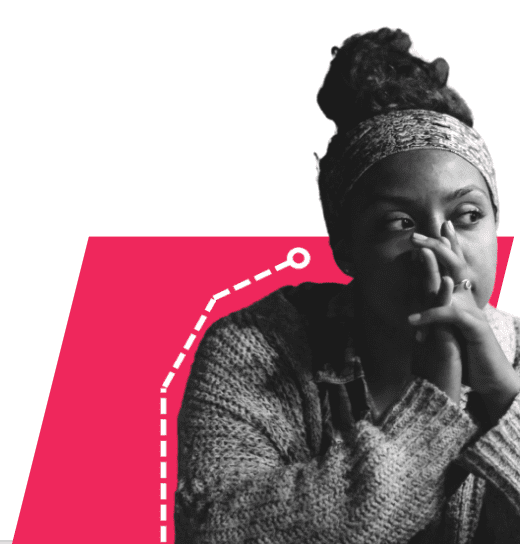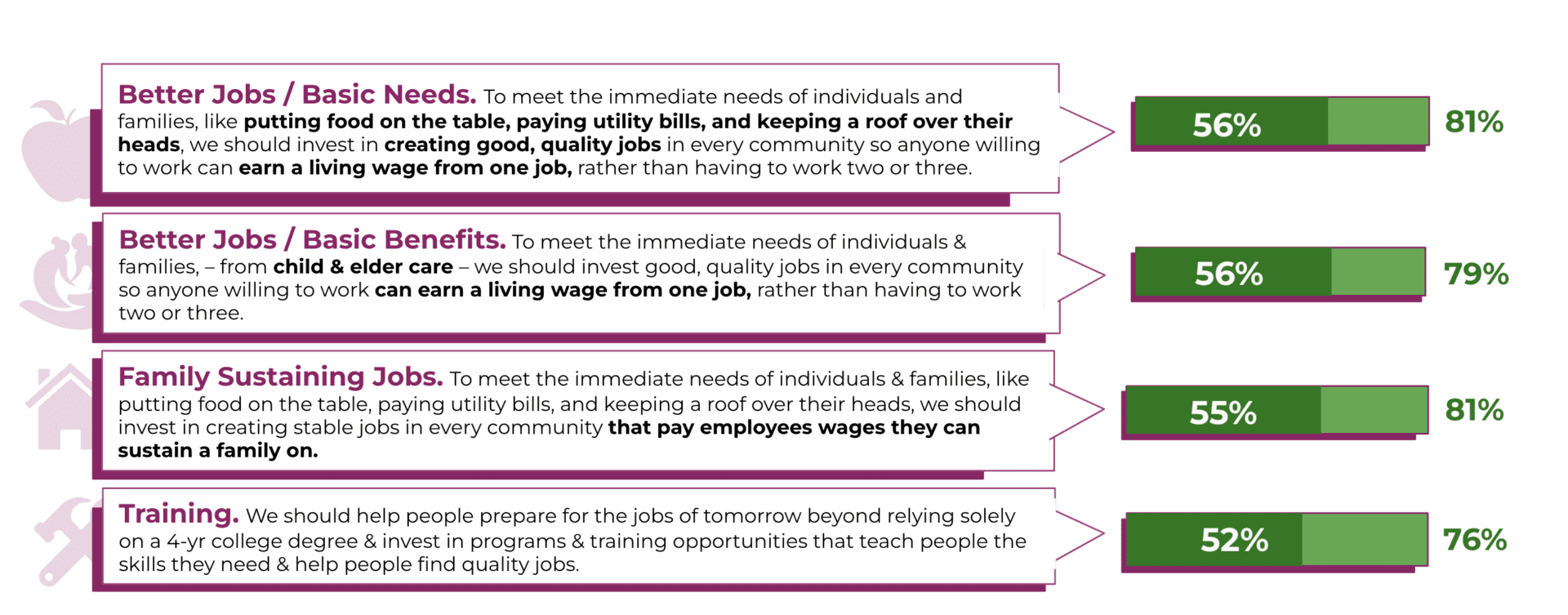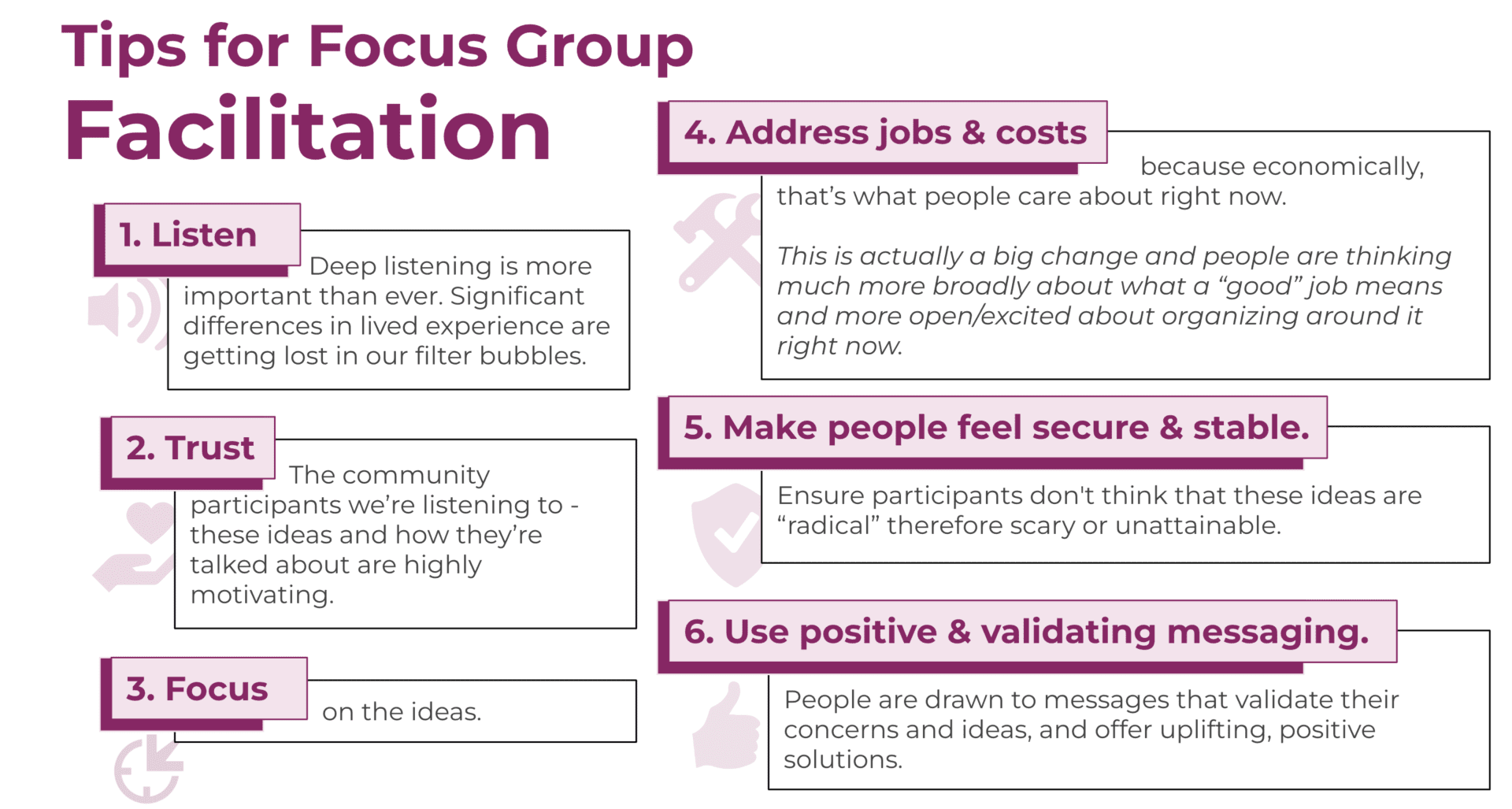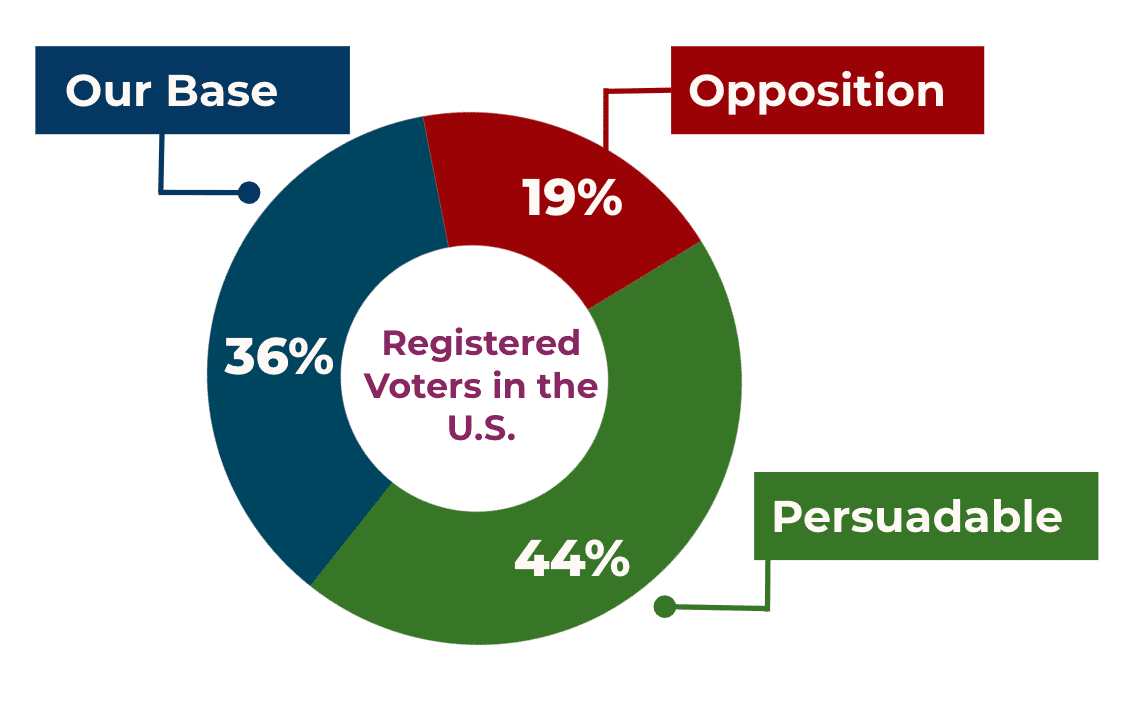
Community Change’s Narrative and Ideas project set out to develop a research program with real people and hand raisers from our wider movement base. This project specifically focused on the economy and economic ideas – our recommendations and findings are based on this focused topic. We wanted to learn …
- How people understood the state of our current economy
- Where people understood themselves to be within our economy
- What differences or changes people would like to see in our economy, & then
- How they shared those ideas & how they responded to ideas shared by others
Grounding & Initial Findings
Why Are Economic Ideas Important?
Ideas occupy the land between values and policy. In one sense they are more specific than a generic value, but not so specific that they are tied to a public policy rule or reform. Let’s use the example of the idea ““The government should invest to create more and better jobs.” By emphasizing ideas and connecting them to values, we open up cognitive pathways to see the economy as a series of choices related to power and possibility rather than a given and unchangeable thing that happens to them.

Ideas also locate in the realm where the lived experience debate is taking place. For example, “should” implies a notion of collective action connected to a value choice an individual might make. By connecting ideas to lived experience and notions of agency we priming people around a progressive economic mindset.

Ideas for action can also challenge existing static metaphors that serve as blocks around the very notion that we might create an economy that works better for the people inside that economy.

Finally, ideas can preempt baggage, labels and triggers that can come from existing policy or political talk. The top performing messages in our focus groups were ones that built on new ideas. Voters want a new matrix – and they are open to new frameworks particularly those that seem to bring them greater economic security.

Our Top Five Values
Across our conversations, we found the same five values emerging: “Safety, Security, & Stability,” “Care,” “Community & Family Wellbeing,” “Hard Work,” and “Racial Justice & Equity.” Among voters nationwide, ideas centered on meeting the immediate needs of individuals and families by investing in creating good, quality jobs in every community so anyone willing to work can earn a living wage from one job, rather than having to work two or three and paying employees wages that can sustain a family on rise to the top. UBI and Guaranteed Income are less well-known ideas, but the latter is slightly more popular amongst voters overall.

The Ideas Lab Model
Deep Listening As an Organizing Tool

At the core of our model is the knowledge that listening, as an act, is a necessary prime for listener and receiver cognitive shift. First, we know that listening creates interaction that makes the speaker feel validated, which allows a dialectical process in which two or more narratives create NEW narratives. This in turn yields validation of each other’s narratives and the search for new narratives builds agency and open space for hope.
In the ideation groups, these moments ultimately generate feelings of possibility that directly empower the speaker. In each ideation group, we found that being attentive to the needs and emotions of the participants was a ruling factor in yielding strong ideas.
Research Track 1: Ideas Labs with Hand Raisers
Ideas Labs were designed by Angela Peoples & PaKou Her from The South LLC and participants were composed of actual community members that we know and work alongside. Each lab was three hours long, incorporating discussion, political/media education, and a cultivated space for people to be as boldly imaginative and optimistic as possible when envisioning an economy & world that works for everyone.
Research Track 2: Focus Groups & QualBoards
Ideation Groups & QualBoards were led by Community Change staff. Each group was two hours long, with in-depth questions about people’s thoughts on the economy, their own personal economic situations, understanding how they understand the roles of government, business owners, and big/wealthy corporations. Each session also tested a variety of “value statements” that are skewed to different political leanings to gauge people’s reactions.
Targets
Out of registered voters in the United States, we conducted a regression to model audiences into categories such as base, opposition and persuadables.

Our Base believes that government creates opportunities for advancement and wealthy Americans achieved their success because they were given more opportunities or people of color face greater barriers to economic success than white people. They would also disagree with either of the following statements: reverse discrimination, where whites are put at a disadvantage in order to benefit minorities, is a growing problem OR too often minorities use racism as an excuse for their own failures.
Our Opposition believe government should get out of our way and wealthy individuals achieved their success because they worked harder than others or people of color who cannot get ahead are mostly responsible for their own condition. They would strongly agree with either of the following statements: are put at a disadvantage in order to benefit minorities, is a growing problem OR too often minorities use racism as an excuse for their own failures.
Persuadables are divided on each dimension but lean somewhat toward progressive worldviews on class & race and lean somewhat toward conservative world views on the role of government.
Implications for Philanthropy
1. Funding methodologies that build more agency from the people whose lives will actually be impacted. We know that testing your ideas in focus groups is fundamentally different than asking them for their own ideas.
2. Speaking about new economic ideas can be the basis for uniting differences across our movements. Funders can help unite progressive factions by creating space for common ground.
3. Allow grassroots campaigns access to resources to conduct their own types of participatory research. It unites organizing with ideas and policy initiatives in more powerful ways.
